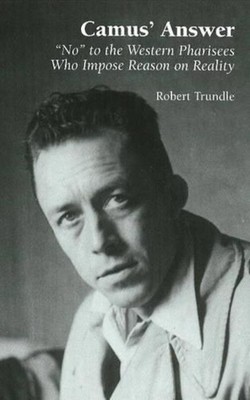
- We will send in 10–14 business days.
- Author: Robert Trundle
- Publisher: Sussex Academic Press
- ISBN-10: 1902210980
- ISBN-13: 9781902210988
- Format: 15.2 x 22.9 x 1.3 cm, kieti viršeliai
- Language: English
- SAVE -10% with code: EXTRA
Reviews
Description
Although Camus was called the conscience of his age, no writer has continued to be both more vilified and exalted in the West. His writings are not only a devastating critique of Western philosophy, but Camus' cultural horizons are infused with heartfelt insights of Eastern wisdom. Western culture is vulnerable to dilemmas of existence because it seeks to make abstract certain absolutes: The West has failed to come to grips with our finite existential condition. Indian thought distinguishes social, political, scientific and philosophical views of reality from reality itself. And this distinction evokes hope, humility and spirituality that promotes a courage to live with truths not faced by the West. This book is a gateway to investigating whether Camus' ideal of living without conceptual absolutes is an attainable goal. Camus' insights in terms of the East are present in his fictional illustrations of alienated twentieth-century outsiders (The Stranger); the pursuit of truths that are not immutable and absolute (The Myth of Sisyphus); plays that highlight the absurdity of irrational views of reality (Caligula); culminating in The Rebel, which warned of illusory dogmas of absolutist philosophies.
EXTRA 10 % discount with code: EXTRA
The promotion ends in 23d.17:41:09
The discount code is valid when purchasing from 10 €. Discounts do not stack.
- Author: Robert Trundle
- Publisher: Sussex Academic Press
- ISBN-10: 1902210980
- ISBN-13: 9781902210988
- Format: 15.2 x 22.9 x 1.3 cm, kieti viršeliai
- Language: English English
Although Camus was called the conscience of his age, no writer has continued to be both more vilified and exalted in the West. His writings are not only a devastating critique of Western philosophy, but Camus' cultural horizons are infused with heartfelt insights of Eastern wisdom. Western culture is vulnerable to dilemmas of existence because it seeks to make abstract certain absolutes: The West has failed to come to grips with our finite existential condition. Indian thought distinguishes social, political, scientific and philosophical views of reality from reality itself. And this distinction evokes hope, humility and spirituality that promotes a courage to live with truths not faced by the West. This book is a gateway to investigating whether Camus' ideal of living without conceptual absolutes is an attainable goal. Camus' insights in terms of the East are present in his fictional illustrations of alienated twentieth-century outsiders (The Stranger); the pursuit of truths that are not immutable and absolute (The Myth of Sisyphus); plays that highlight the absurdity of irrational views of reality (Caligula); culminating in The Rebel, which warned of illusory dogmas of absolutist philosophies.


Reviews